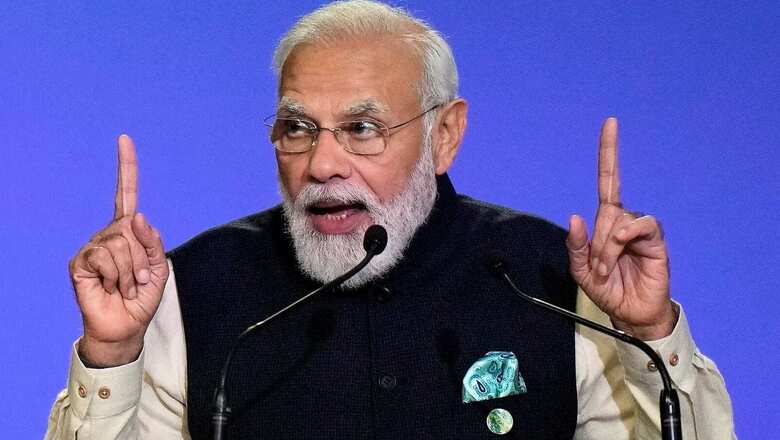
views
The Centre for Science and Environment (CSE) on Tuesday said India’s targets announced by Prime Minister Narendra Modi at the global climate summit COP 26 are bold and ambitious but will be immensely challenging to achieve. In a statement, the research and advocacy organisation said by announcing these targets, India is not just walking the talk, but “running the talk”.
At the ongoing COP 26 in Glasgow, Modi announced “enhanced” targets for India to combat climate change – by 2030, India will increase its non-fossil fuel energy capacity to 500 giga watt, meet 50 per cent of its energy requirements from renewable sources, reduce its total projected carbon emissions by one billion tonnes from now, and bring down the carbon intensity of its economy by less than 45 per cent. And by 2070, India will achieve its target of net zero. “India’s national targets, announced by its Prime Minister, are bold and ambitious, but they will be immensely challenging as well to achieve. In fact, by announcing these targets, India is not only walking its talk, it is literally running the talk – and recognising the urgent need to reduce greenhouse gas emissions and combat climate change,” said CSE director general Sunita Narain.
The organisation said that these ambitious pledges are a challenge to the developed world to step up their action. “Going by our comparatively low contribution to global emissions, coupled with the fact that our economy needs to grow and meet the energy needs of millions of poor citizens, we did not need to make such an ambitious pledge – but these are a challenge to the already rich world to step up – the time for procrastination and prevarication is over,” it said.
The CSE observed that India has committed to reduce its carbon dioxide emissions by 1 billion tonnes – roughly 22 per cent from the business-as-usual (BAU) scenario and “this means that per capita emissions in 2030 will be lower than all industrialised countries of the world, including China”. “It also means that we have committed to a transformation of our energy system and this when we still have the challenge of reaching affordable energy to millions in the country,” it said. The CSE further said that as far as the net-zero 2070 is concerned, India’s target matches the commitment of the already industrialised. “The fact is that the world must reach net-zero by 2050, which means that the Organisation for Economic Co-operation and Development (OECD) countries should get there by 2030 and China by 2040. The net zero target is not equitable or ambitious,” it said.
The CSE also decoded each of the targets announced by Modi. On the bold step to become net zero by 2070, it said that according to the IPCC, global emissions must become half by 2030 and reach net zero by 2050.
“Given the enormous inequity in emissions in the world, the OECD countries must then reach net zero by 2030, China by 2040 and India and the rest of the world by 2050. However, the targets for net zero are both inequitable and unambitious. As per this, OECD countries have declared a net zero target for 2050 and China for 2060,” said Narain. Therefore, India’s net zero target of 2070 is an extension of this and cannot be argued against, the CSE said, adding that this combined net zero goal will not keep the world below 1.5 degree Celsius temperature rise and it means that OECD countries must frontload their emission reductions by 2030. “Most importantly, China which will occupy 33 per cent of the remaining budget and must be asked to reduce its emissions drastically in this decade — China alone will add 126 Gt in this decade,” it said.
.
Read all the Latest News , Breaking News and IPL 2022 Live Updates here.




















Comments
0 comment